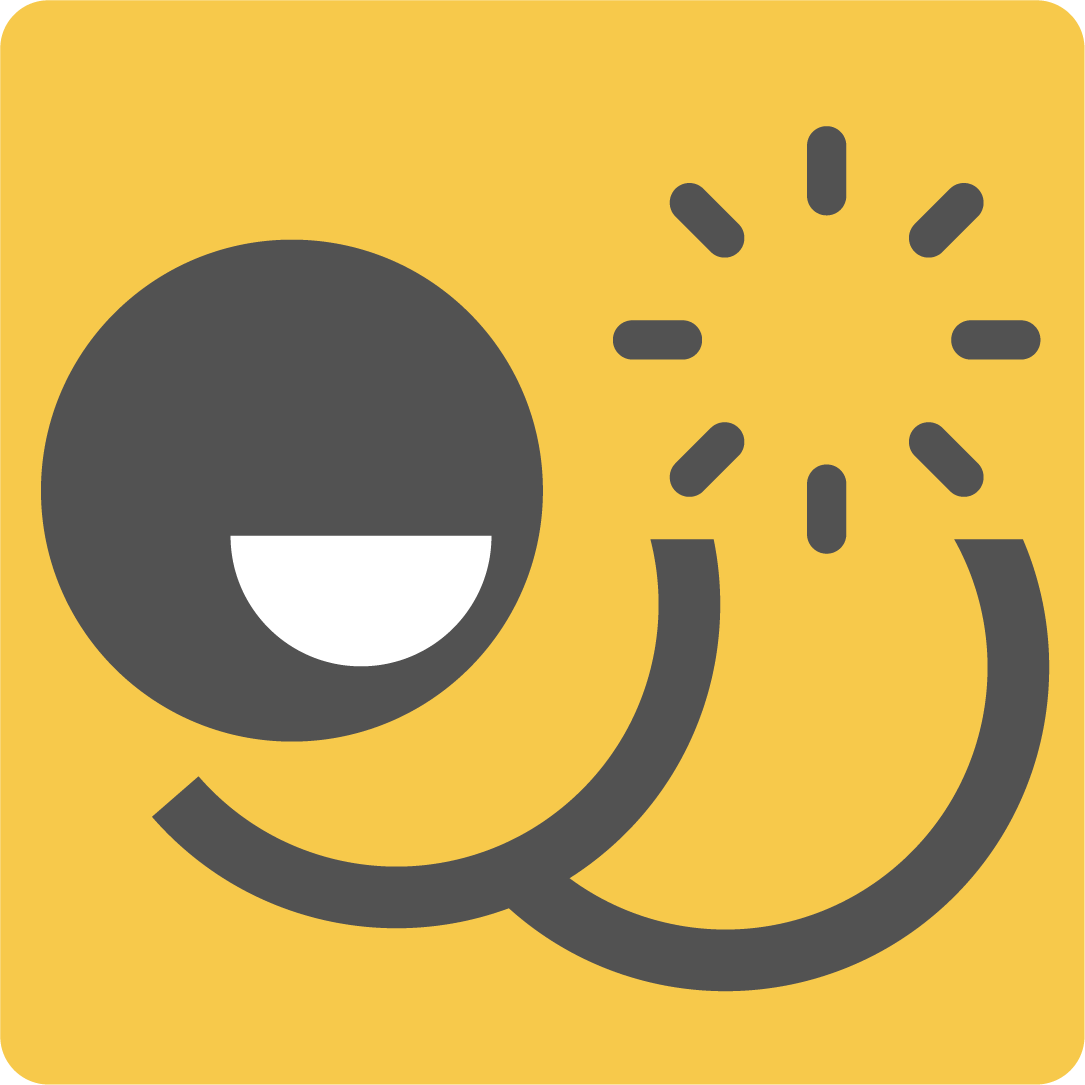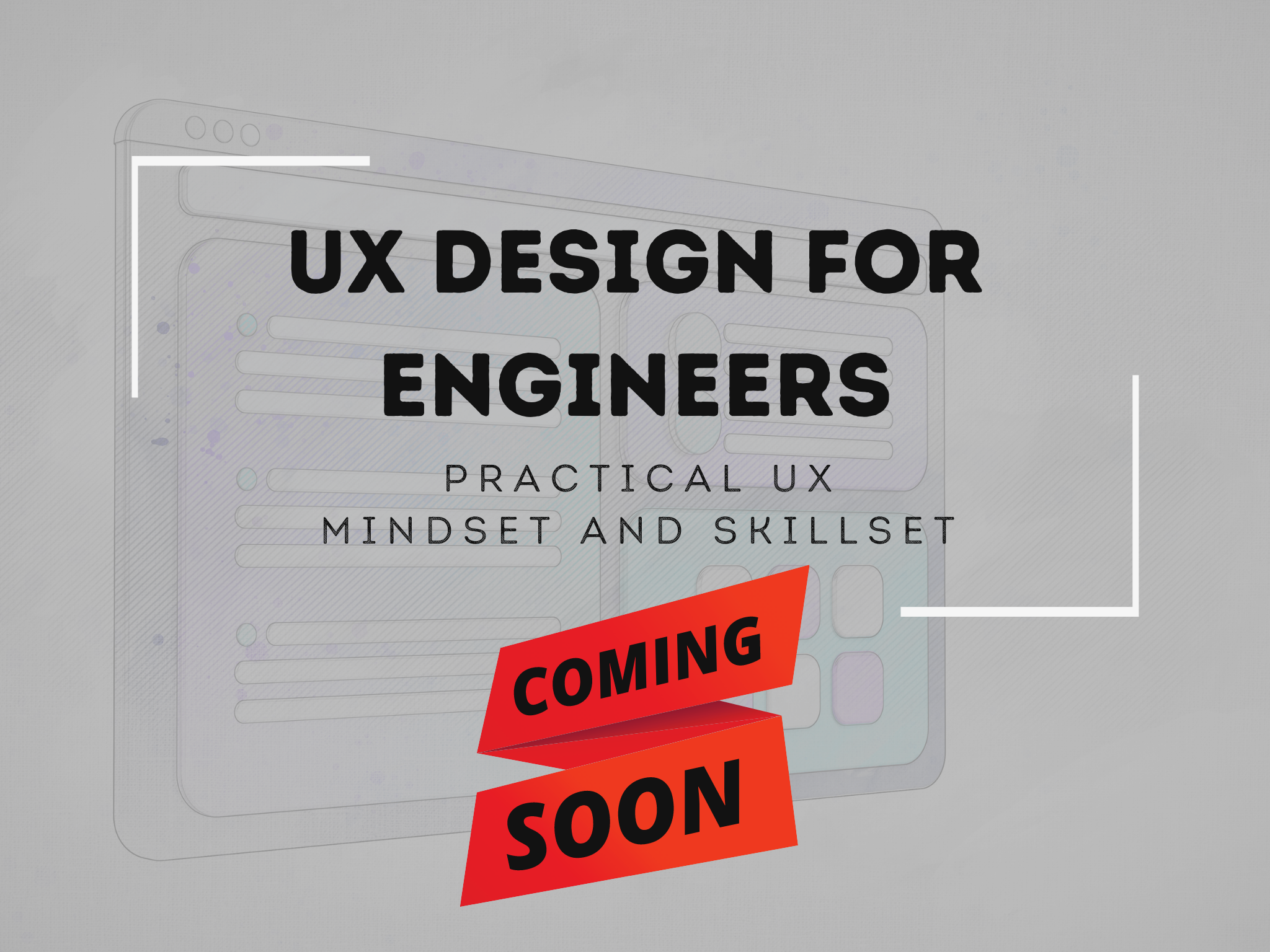UX Design for Engineers - Practical UX Mindset and Skillset (Coming Soon)
I've outlined and written a good portion of a book I'm calling UX Mindset. Part of the point of view of the book is that it's useful, fun, and helpful to be a bit of a generalist whether your professional work is focused mostly on business, design, engineering, or art. Thinking of the bigger system, how it matters to different groups of people combined with tools and techniques for learning and collaborating in a caring about humans way has a lot of benefits.
Before I finish that book. I want to take a more specific focus.
To delve further I'll be focusing on Engineering + UX first.
Product engineers, whether you're making software, hard goods, or products that combine being a thing and also having embedded software, you're who I'm working to help.
Why would UX techniques help you as a product engineer?
Likely you've encountered all kinds of situations where it would be useful to know more about your audience. Or to make sense of a business strategy and how the product you're working on needs to perform to fit the strategy. Or to navigate conversations of constraints, collaborate when the technology is clearly ready to make things, and be realistic about when technology is still evolving and not ready. Even further, to be able to build new capabilities and make new technologies ready that work for your team, your organization, and your users/audience.
Have you felt blocked by any of those situations? Are you excited yet?
Let's look at who can benefit by adding some UX tools to your engineering skills and experience.
Benefits for you.
For you it means you become a new kind of participant in conversations. Making sense of how decisions get made, how to influence those decisions navigating multiple groups of people's perspectives, needs, and other context. This will help you at any stage of your engineering career.
For your audience.
For your audience/users of what you make it means you understand them better and will make more meaningful things for them. I want to spread the spark for how incredibly fun it is to be co-creating products with real people including them and learning from them. When you shape your product all along its life with a combination of general learning, general and specific experiments you see so many great things take shape through teamwork, collaboration, learning, and building. Your audience will benefit from how your products are imbued with relevance and meaning by being useful, usable, learnable, accessible, safe, and ethical.
For your team.
For your team it means feeling connected and included in shaping what everyone commits to making. What are you ready to build well and in what way is all part of the conversations, decisions, and commitments during the whole life of a product. This also includes planning for learning, adopting, and building new capabilities along the way.
For your organization.
For your organization whether it's a kind of business or government agency, you get all kinds of benefits from this. Benefits for how your organization is known and to be a leader in a place that involves your audiences. To be known as a co-creative entity that makes meaningful, important, valuable things for your audiences, users, or constituencies. To have achievable goals informed by credible ongoing learning means you can make commitments with a healthy combination of confidence, clarity, and an appropriate amount of ambiguity. Another way to say that: you can feel confident in what you know enough about now and need to know next.
Even the world.
For the world it means learning about surprises from industries that are helpful not harmful. Stories of how engineering is making new things possible for people of all kinds, shapes, sizes, races, like all of us. Stories where an industry developed ways to harm, oppress, and perpetuate abuses of humans will become a thing for history books instead of todays news.
Lofty? Maybe some of it.
Most human factors and including humans is quite practical, approachable. Not all of the good happens all at once but we can make good happen. I know with all my being that caring about people, working to get skilled with understanding people and using that is approachable and worthwhile.
Learning Modules?
I'll be publishing a video + workbook based class with multiple sections, planning on 60-90 minutes. Also I'll be turning that into an e-book and audio book.
For the scope, it will be a crash course of practical ideas and tools you can use right away.
These modules are meant to give you some basic yet powerful UX practice you can use in your role directly and to collaborate with a folks who focus in design as their main profession like UX designers, content designers, design strategists, interaction designers, user researchers and so on with all the user centered design specialties.
More to come about the outline and activities.
- This will be a workshop/class/seminar I can present to groups via Zoom.
I'll offer an e-book and audio book version.
Also if you run a learning module marketplace and wish to arrange an exclusive version for your platform, I'm open to those conversations.

